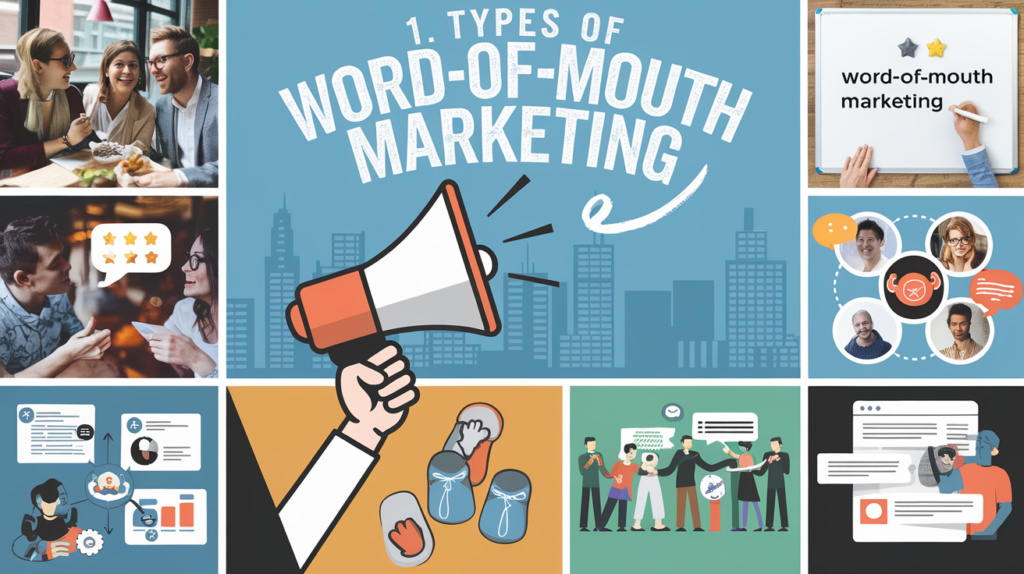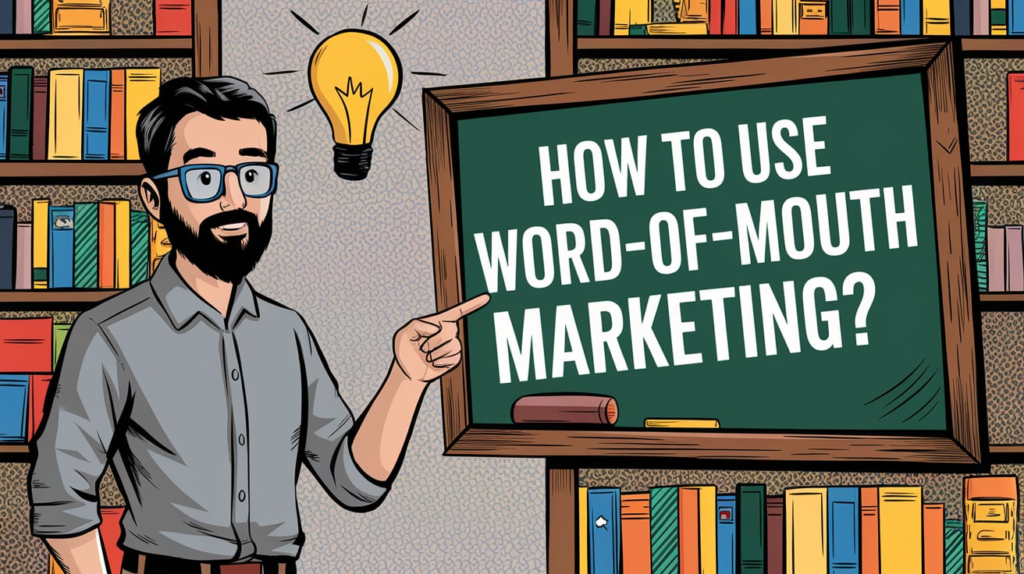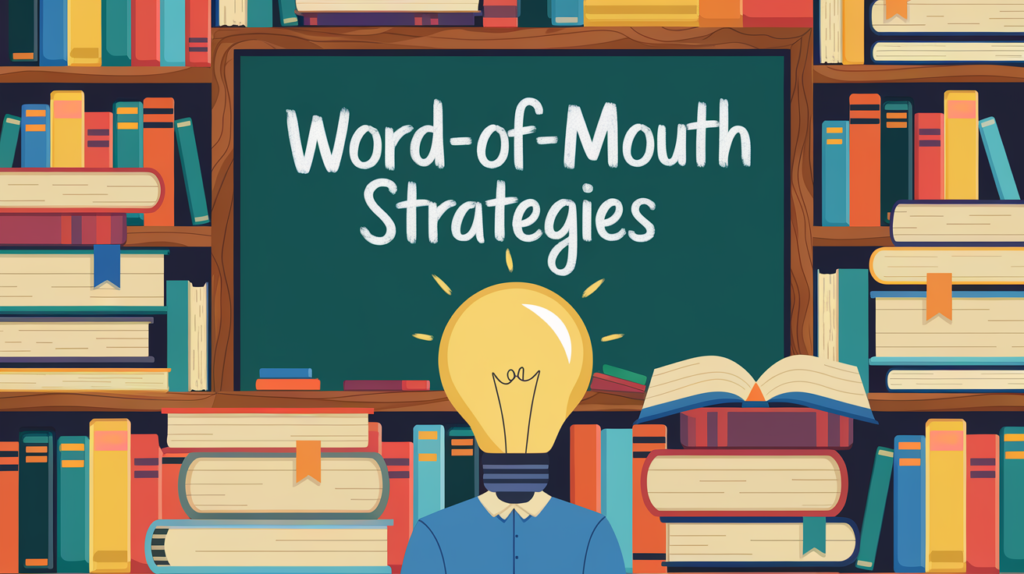Physical Address
304 North Cardinal St.
Dorchester Center, MA 02124
Physical Address
304 North Cardinal St.
Dorchester Center, MA 02124


Word of mouth marketing has long been considered one of the most powerful tools in a marketer’s arsenal. In an age where digital channels dominate, the value of a personal recommendation remains unparalleled. The simplicity of word of mouth (WOM) marketing lies in its core principle: people trust the opinions of their friends, family, and peers more than any advertisement. But what exactly is word of mouth marketing, and how can businesses leverage it to their advantage? This article will delve deep into the concept, exploring its types, strategies, and the reasons why it’s a critical element for any marketing plan.
Word of mouth marketing (WOM marketing) refers to the organic promotion of a product or service by customers through verbal communication. Unlike traditional advertising methods that rely on paid media, word of mouth marketing depends on the authentic experiences and opinions shared by individuals. When satisfied customers talk positively about a brand to others, they effectively become brand ambassadors, creating a ripple effect that can significantly boost a company’s reputation and sales.
WOM marketing isn’t limited to face-to-face interactions; it also extends to online platforms, where reviews, social media shares, and influencer endorsements amplify the reach of word-of-mouth advertising. This form of marketing is particularly powerful because it is perceived as more trustworthy than traditional ads, as it comes from real people who have no vested interest in promoting the product or service.

Word of mouth marketing can be categorized into various types, each with unique characteristics and strategies. Understanding these types can help businesses tailor their WOM marketing efforts to effectively engage their target audience. Below are the main types of WOM marketing:
Publicity is a form of word of mouth marketing that occurs when a brand receives attention from the media or the public without directly paying for it. This could be in the form of news articles, interviews, or coverage of events. Positive publicity can significantly boost a brand’s reputation and credibility, leading to increased word of mouth promotion. For instance, if a well-known magazine features a product in a “Top Picks” article, it can drive a wave of consumer interest and discussions.
Buzz marketing focuses on creating excitement around a brand, product, or event. The goal is to generate conversation and interest that spreads quickly among consumers. Buzz marketing often involves creating a sense of mystery or exclusivity, encouraging people to talk about the brand. For example, a company might release a limited edition product with little information beforehand, sparking curiosity and discussion that leads to widespread word of mouth advertising.
Blogging is a powerful tool in word of mouth marketing, especially in the digital age. When bloggers write about their experiences with a product or service, they influence their readers’ opinions and purchasing decisions. Blogs often serve as trusted sources of information, and a positive review from a reputable blogger can lead to increased word of mouth referrals.
Viral marketing is a strategy that aims to create content so compelling that it is shared rapidly and widely across the internet. This type of WOM marketing leverages the power of social media platforms to reach a broad audience in a short amount of time. The key to successful viral marketing is crafting content that resonates with people on an emotional level, making them want to share it with others. Examples of viral marketing include humorous videos, memes, or impactful social campaigns that quickly gain traction online.
Social media marketing (SMM) involves using platforms like Facebook, Instagram, Twitter, and LinkedIn to facilitate word of mouth marketing. By engaging with customers on these platforms, brands can encourage conversations, shares, and recommendations. Social media is particularly effective for WOM marketing because it allows for direct interaction between the brand and its audience, fostering a sense of community and loyalty. For example, a brand might launch a hashtag campaign that encourages users to share their experiences, which in turn generates word of mouth promotion.
Referral marketing, a structured form of word of mouth marketing, incentivizes existing customers to refer new customers to a brand. This can be achieved through referral programs that offer rewards, discounts, or other benefits for successful referrals. Referral marketing is highly effective because it combines the trust inherent in word of mouth marketing with a tangible incentive, motivating customers to spread the word about the brand.
Emotional marketing taps into the emotions of the audience to create a deep connection with the brand. By evoking feelings such as happiness, nostalgia, or even urgency, brands can inspire customers to share their experiences with others. Emotional marketing is often used in campaigns that tell a compelling story or align with the values and beliefs of the audience. When customers feel an emotional bond with a brand, they are more likely to talk about it and recommend it to others, thereby driving word of mouth marketing.
Word of mouth marketing is crucial for several reasons, making it a cornerstone of any effective marketing strategy.
Word of mouth marketing is powerful because it builds trust. According to Nielsen, 92% of consumers trust recommendations from friends and family over any other type of advertising. This trust translates into higher credibility for the brand, as consumers are more likely to believe in a product or service that has been recommended by someone they know and trust.
WOM marketing is one of the most cost-effective forms of advertising. Unlike traditional advertising, which often requires substantial financial investment, word of mouth marketing relies on the organic spread of information. Even when brands choose to amplify word of mouth through referral programs or influencer partnerships, the cost is usually lower compared to conventional marketing channels.
Customers who engage in word of mouth marketing often feel a stronger connection to the brand. By sharing their positive experiences, they reinforce their loyalty to the brand and are more likely to continue purchasing from it in the future. This increased loyalty can lead to long-term customer retention and higher lifetime value.
One of the most exciting aspects of word of mouth marketing is its viral potential. When a message resonates with consumers, it can spread rapidly across social networks, reaching a wide audience in a short period. This viral effect can result in massive exposure for the brand, far beyond what traditional advertising can achieve.

Implementing a successful word of mouth marketing strategy requires a deep understanding of your audience, as well as a commitment to delivering exceptional customer experiences. Here are some effective ways to leverage word of mouth marketing for your business.
The foundation of any successful WOM marketing campaign is customer satisfaction. Ensuring that your customers have positive experiences with your product or service is crucial. Satisfied customers are more likely to share their experiences with others, leading to organic word of mouth marketing.
Online reviews are a powerful form of word of mouth advertising. Encourage your customers to leave reviews on platforms like Google, Yelp, and Amazon. Positive reviews can significantly influence potential customers, as many people rely on online feedback before making a purchase decision.
Social media is a key platform for word of mouth marketing. Encourage your customers to share their experiences on platforms like Facebook, Instagram, and Twitter. You can also engage with your audience by responding to their posts, creating shareable content, and hosting giveaways or contests.
A well-designed referral program can amplify your word of mouth marketing efforts. Offer incentives such as discounts, free products, or exclusive access to services for customers who refer others to your brand. This not only encourages word of mouth but also drives new customer acquisition.
Influencer marketing is a modern twist on word of mouth marketing. Collaborating with influencers who align with your brand can help you reach a wider audience and build credibility. Influencers can share their experiences with your product or service, generating buzz and encouraging their followers to try it out.
Exceptional customer service can turn your customers into advocates for your brand. When customers feel valued and appreciated, they are more likely to share their positive experiences with others. Train your staff to provide top-notch service and go the extra mile to meet customer needs.

Developing effective word of mouth marketing strategies involves a combination of creativity, customer understanding, and strategic planning. Here are some proven strategies to help you harness the power of WOM marketing.
A compelling brand story can be a powerful tool in your word of mouth marketing arsenal. Your story should resonate with your target audience, evoking emotions and creating a connection. When customers feel emotionally connected to your brand, they are more likely to share your story with others.
Identify customers who are already advocating for your brand and reward them for their loyalty. This can be done through exclusive offers, early access to new products, or public recognition. By nurturing these relationships, you can encourage even more word of mouth referrals.
User-generated content (UGC) is an excellent way to amplify word of mouth marketing. Encourage your customers to create content related to your brand, such as photos, videos, or testimonials. Share this content on your social media channels and website to showcase real customer experiences and inspire others to join in.
Hosting events, whether in-person or virtual, can generate significant word of mouth buzz. These events provide an opportunity for customers to engage with your brand, experience your products or services firsthand, and share their experiences with others. Consider hosting product launches, workshops, or community gatherings to foster a sense of belonging and encourage word of mouth promotion.
Monitoring customer feedback is essential for maintaining a positive brand image. Responding to both positive and negative feedback shows that you value your customers’ opinions and are committed to improving their experience. This proactive approach can turn potential detractors into loyal advocates who spread positive word of mouth about your brand.

Word of mouth marketing can benefit a wide range of businesses, from small startups to large corporations. However, certain industries and business models are particularly well-suited to WOM marketing.
Small businesses and startups often have limited marketing budgets, making word of mouth marketing an invaluable tool. WOM marketing allows these businesses to build brand awareness and attract new customers without the need for expensive advertising campaigns. By focusing on customer satisfaction and leveraging their existing customer base, small businesses can generate organic word of mouth and grow their business.
Businesses operating in niche markets can benefit significantly from word of mouth marketing. In these markets, customers are often highly knowledgeable and passionate about the products or services they purchase. When these customers share their experiences with others in their community, it can lead to a strong and loyal customer base.
Service-based businesses, such as restaurants, salons, and fitness studios, thrive on word of mouth marketing. The quality of service provided is a key factor in customer satisfaction, making it essential for these businesses to prioritize customer experience. Positive word of mouth can lead to repeat business, referrals, and a strong reputation in the local community.

Several factors contribute to the effectiveness of word of mouth marketing. Understanding these factors can help businesses create environments that encourage customers to share their positive experiences.
The quality of your product or service is the most critical factor in fostering word of mouth. If customers are genuinely impressed with what you offer, they are more likely to recommend it to others. Ensure that your product meets or exceeds customer expectations to drive positive word of mouth.
Providing an exceptional customer experience is essential for generating word of mouth. This includes not only the quality of the product but also the ease of purchase, the level of customer service, and the overall experience of interacting with your brand. A seamless and enjoyable experience increases the likelihood of customers talking about your brand.
As mentioned earlier, emotional marketing plays a significant role in word of mouth marketing. When customers feel an emotional connection to your brand, they are more likely to share their experiences with others. This connection can be fostered through storytelling, brand values, and customer engagement.
Social proof, such as reviews, testimonials, and endorsements, can significantly influence word of mouth marketing. When potential customers see that others have had positive experiences with your brand, they are more likely to trust and try your product or service. Encourage satisfied customers to leave reviews and share their stories to build social proof.
Word of mouth marketing remains one of the most effective and trusted forms of marketing. Whether through organic conversations or structured referral programs, WOM marketing harnesses the power of personal recommendations to build brand awareness, credibility, and loyalty. By understanding the various types of word of mouth marketing and implementing strategic approaches, businesses can tap into this powerful tool to drive growth and success. Whether you’re a small startup or an established brand, focusing on customer satisfaction, leveraging online platforms, and creating memorable experiences will ensure that your customers become your most valuable marketers.